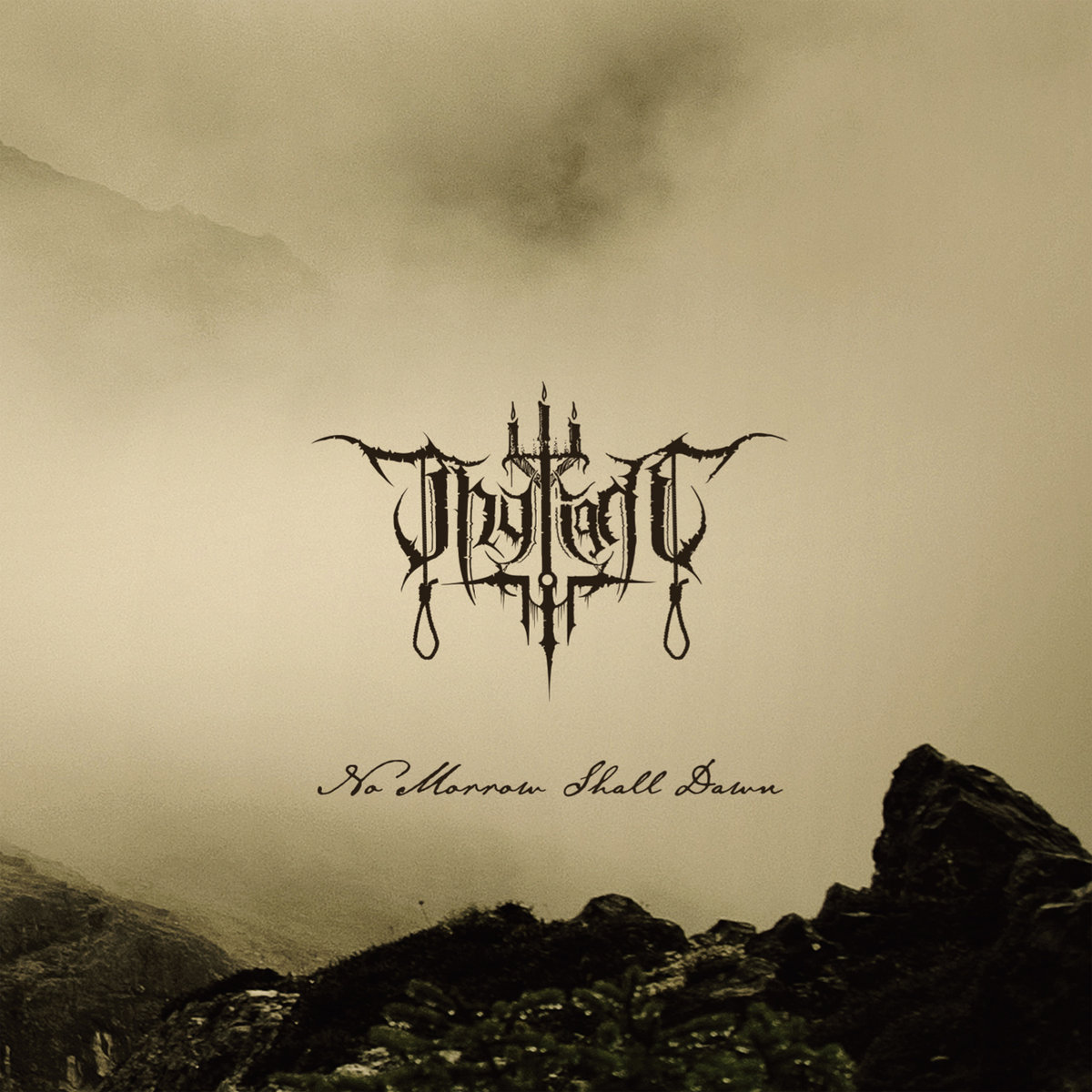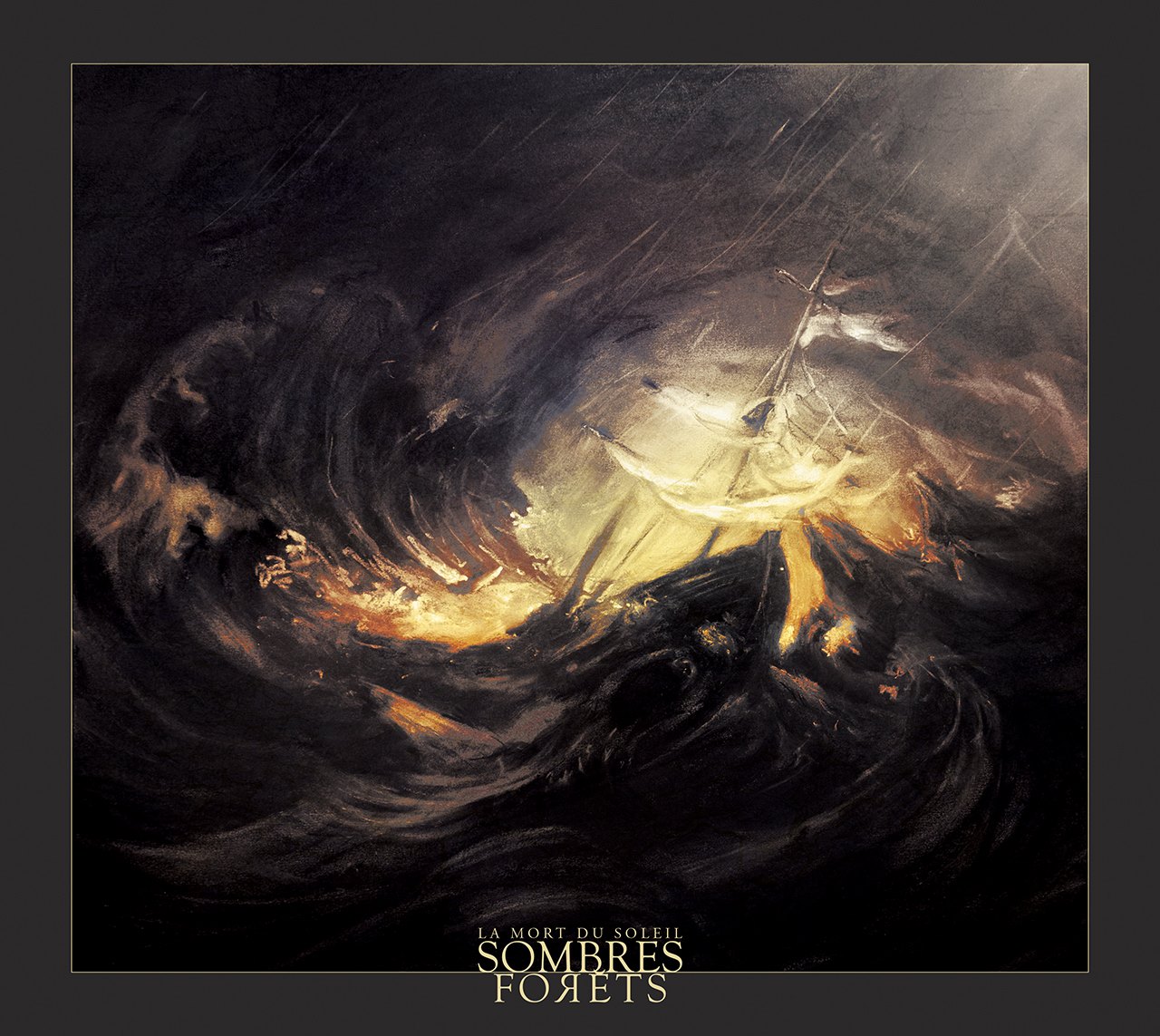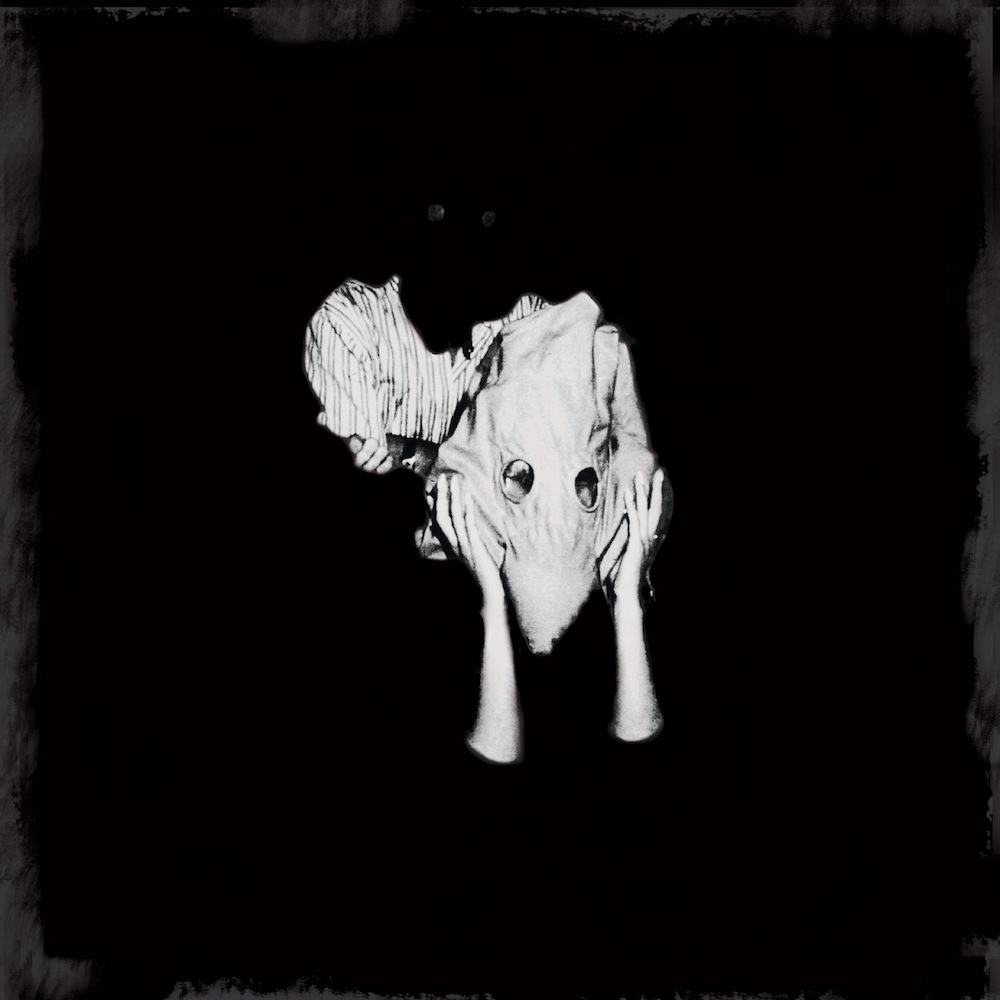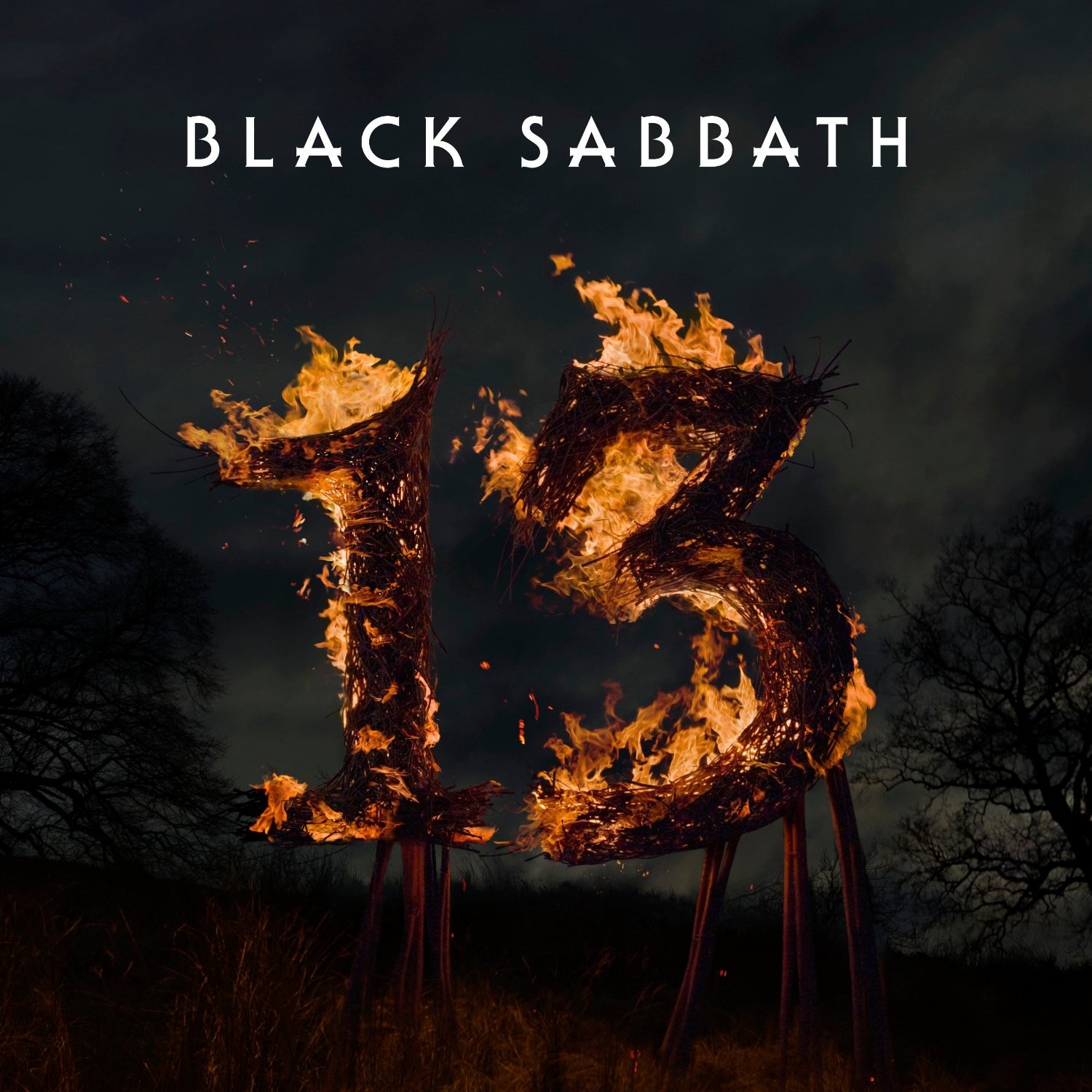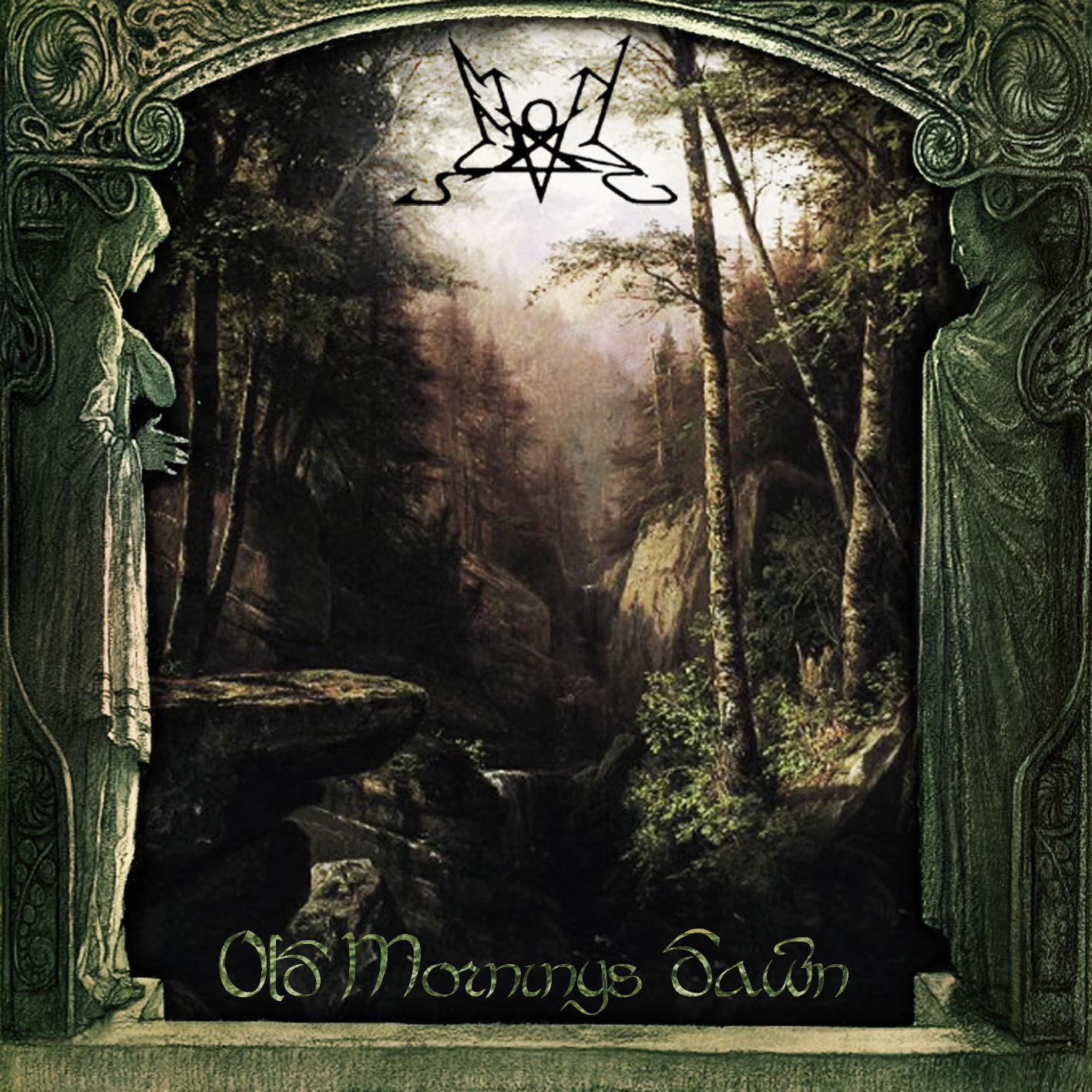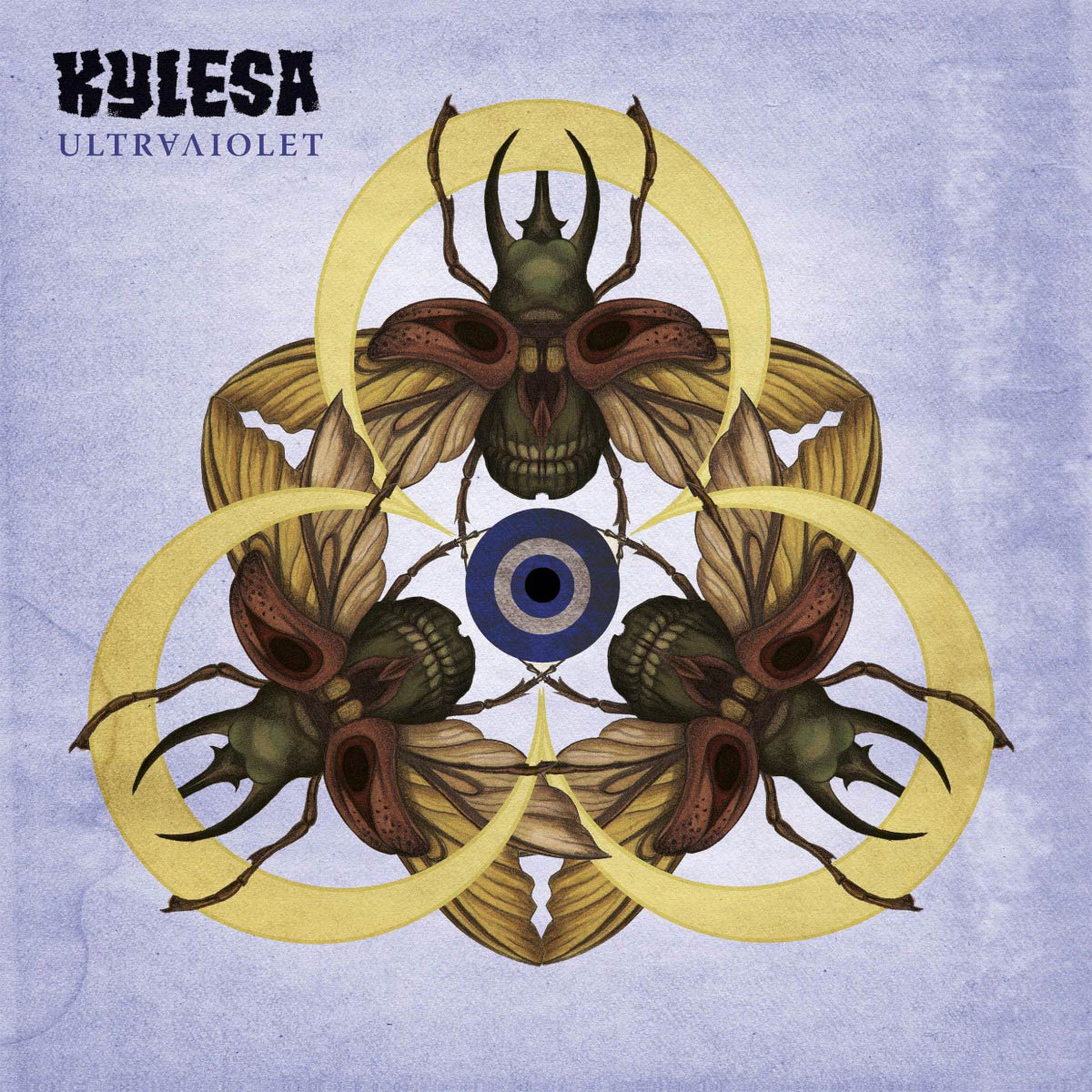Mammoth Grinder – Underworlds
Genre:
Hardcore
As
the title track kicks in, Texas hardcore superstars Mammoth Grinder
starts
things off in their newest record with an
off-kilter
riff that holds your arms while the hardcore obtuseness pummels you
mercilessly in the stomach. Combined
with the brutal album art, Underworlds'
first moments are a perfect indication of what's about to happen.
As a side project of the prolific riff-mongers in Iron Age –
Mammoth Grinder features their guitarist and bassist, with the former
doing vocals -
the
act has had a penchant for infusing hardcore's downtrodden, thick
taste with a distinctly death metal outlook. The
result is a rapid, destructive onslaught,
as the violent rage of both influences culminates in an infectious
and unforgettable sound.
Underworlds
is
a shift from previous Grinder outings in that the band has eschewed
any and all departures from their roots (Scott Vogel would be proud),
and instead presents itself as ten songs all under four minutes
packed with enough grooves and mosh anthems to get your grandma
moving. Underworlds moves between two tempos – all-out destruction
and intense, monolithic slow passages
as vocalist Chris Ulsh roars through the pulse-pounding 'Paragon
Pusher' (Jesus that alliteration) or 'Moral
Crux'.
The sludge-y groove of Rage
and Ruin has
dried up, and all that's left is to trample the ground as death metal
reigns supreme over the crust-tinged might.
I
started to have problems with hardcore earlier this year as, namely,
I branched into doom and black metal, but I've been blessed so far by
a bountiful year for hardcore, with bands like Nails, Weekend Nachos,
and now Mammoth Grinder packing a concise, powerful punch.
Underworlds is
a more protracted burst of aggression than the former two, and while
Ulsh waxes poetic on his hatred of humanity, the band nevertheless
manages to pack each song with enough interesting ideas to actually
add quite a bit of longevity.
The
aforementioned 'Roperide', for example, features a lengthy, hissing
guitar solo that, while juxtaposed with the brutishness of the rest
of the instruments, nevertheless manages to hit you in the small of
the back just in time for everyone else to start kicking at you as
the song draws to a bloody close. That's, of course, saying nothing
of the dearth of catchy riffs and fun the band tantalizes the ear
with. But as Underworlds
goes
into its second half it starts to really explore its death metal
side, mixing in a few tremolo'd riffs and tasty licks ('Born in a
Bag') to give it a welcome boost back to the forefront.
To
conclude, this is a record that hits all the right hardcore notes on
the head – it's catchy, memorable, and cathartic. But Underworlds'
most commendable quality is its refusal to compromise any of those
qualities as they stray from the hardcore formula. Not only is it
hardcore done well, it's hardcore done well with quite a few good
ideas.
Notable Tracks: 'Paragon Pusher', 'Cogs in the Machine', 'Breeding'.
Letlive
– The Blackest Beautiful
Genre:
Post-Hardcore
Post-hardcore,
with the popularity of -core in general, lost most of its credibility
as scene kids flocked to it in the mid 2000s as bands like Touche
Amore and Dance Gavin Dance trampled
the delicate mix of hardcore misanthropy and emo melancholy in the
name of -core cliches. At this point, the genre looks bleak, and it
would take a particularly innovative and talented band to inject some
vitality.
Fortunately,
that shot of adrenaline exploded back into the scene this summer as
letlive put out their newest record The
Blackest Beautiful,
a sequel to 2010's tastefully energetic Fake
History.
Featuring
vocals prodigy Jason Butler's soaring, epic vocals,
Fake History was
all about throwing insane amounts of material at the listener, and
while its frantic take on the genre was a much-needed refreshment,
the band fell silent for three years, returning both with a more
precise list of ideas and
a heap of additional influences.
I
wrote about the band's first single, 'Banshee (Ghost Fame)' back in
June, claiming the band had been listening to too much Static-X and
hoping they weren't going in a nu-metal direction, and I'm pleased to
say they haven't. The
Blackest Beautiful retains
the incessant energy of previous letlive outings, but in a lot of
ways it's more intense, as Butler yells dissonantly on 'Dreamer's
Disease'. Part of that intensity comes from the band's new influences
as Blackest
Beautiful
samples liberally from hip-hop's infectious beats, pop's catchy vocal
hooks, and -core's breakdowns and ebullient energy. That's saying
nothing of 'the Virgin Dirt', which is 100% early 2000s
post-hardcore, with its ethereal riffwork.
Instrumentally,
I could wax about how impressive this record is for hours. If every
-core band had an inkling of letlive's talent, no one would complain
about the genre being redundant. Without ever veering outside of
accessibility and catchiness, the band manages to both make every
song stand out on its own and ensure that they don't sound like
anything I've ever heard. At certain points, listening to The
Blackest Beautiful were
so different from what I was used to that it was almost like
listening to A Day to Remember back in 2008 again. Just when there's
a glimpse of structure, Butler tears it down, whether with a
breakdown or sudden segue into clean vocals. If Fake
History proved
the band had potential, The
Blackest Beautiful shows
what they do using only a little of it. There's so many good ideas
it's difficult to believe the band was on Warped Tour.
The
Blackest Beautiful is,
thus, obviously, an evolution of Fake
History's
ideas, and as the band tries to strike a balance between what they
want to play they invariably succeed at everything they put their
mind to, cementing letlive as an exceptional band and The
Blackest Beautiful as
an exceptional record.
Notable
Songs: 'Banshee (Ghost Fame)', 'Empty
Elvis', 'The Priest and Used Cars'.
Thy
Light – No Morrow Shall Dawn
Genre:
DSBM
Latin
America, when it comes to metal, is woefully underrepresented. With
the obvious exceptions of Sarcofago and Sepultura, Central and South
America's metal scenes have never achieved the same level of fame and
renown as their European and North American counterparts. Thus, when
a band comes out of Latin America all eyes are immediately on them to
see what exactly they can bring to the table.
This
year saw the first full length of a Brazilian act called Thy Light,
who, despite hailing from the near-tropics, play a genre that's come
to be associated with darkness and cold – black metal. What's more,
Thy Light are a DSBM band, and a one-man project at that. The
twisted brainchild of Brazilian artist Paolo Bruno, Thy Light are
relative newcomers in general, with their first demo
Suici.DE.pression
making
headlines two years ago for its mix
of new and old DSBM elements.
No Morrow Shall
Dawn,
the band's first full length, saw the light of day in July of this
year, and since then has acquired a polarized status in the metal
community, with fans equally praising and criticizing Bruno's latest
endeavour.
At
forty-one minutes, No
Morrow Shall Dawn is
a rather short stop, and takes the form of five long-ish songs –
the title track being nearly thirteen minutes – that allow Bruno
plenty of time to stretch and display what Thy Light have to offer.
Which, surprisingly enough, is equal parts refreshing and
attention-grabbing as it is melodramatic and overdone.
What's
most striking at first about Thy Light's music is that Bruno
completely eschews the “cold” musical quality that lo-fi
production confers upon the music of DSBM giants such as Xasthur,
Silencer, and Shining. No
Morrow Shall Dawn is
crystal clear the entire way through, and in certain ways this works
to the record's advantage, especially during its more intense
portions because Bruno also inserts, conversely, feelings of heat
into
the record that, while just as oppressive as Xasthur's cold, work a
little bit differently. Anyone who's worked outside during a heat
wave knows how soul-sucking it can be, and when Bruno combines those
elements with a plethora of DSBM staples – forlorn synths,
tormented shrieks, and heart-wrenching melodies, to name a few –
the result is definitely not what you've come to expect from
depressive bands.
As
far as music goes, No
Morrow Shall Dawn finds
a new way to torment its listener, except instead of the icy spikes
of Niklas Kvarforth, Bruno cloaks the listener in a suffocating,
feverish haze, and while it doesn't work all of the time –
'Wanderer of Solitude' is the record's best example – it's a new
take on an old idea, and for that reason deserves praise. Even
Bruno's choice to include tortured clean vocals is a relatively novel
idea, and it works pretty damn well. And
because it's so short, No
Morrow Shall Dawn doesn't
afford itself the opportunity to drag its feet, with its few lighter
moments packed with acoustic guitar and emotion.
Unfortunately,
when it comes to everything else, No
Morrow Shall Dawn is
fairly unimpressive and derivative. The guitars, as
interesting and novel as Bruno's idea with them are,
sound exactly like what Make a Change...Kill Yourself first laid down
in 2000. The lyrics are melodramatic and angsty,
coming across as Bruno whining about wanting to kill himself, which
satisfies the 'S' of 'DSBM' but certainly not the 'D'. And for as
much as I just said about Bruno experimenting with a different source
of anguish for his listeners, it's not long before he withdraws to
the comfort of the age-old formula, with a ghostly break in the
title track and a brief, effervescent instrumental 'Corridor Seco'.
No
Morrow Shall Dawn is
a mixed, eclectic
bag. While in its later moments it struggles with originality, in its
first parts it presents what could be a very new, very interesting
take on depressive black metal. While it's abundantly clear that
Bruno is ironing out the kinks in his formula, it's also very obvious
that he has hit on something special. Even at its most redundant,
though, Thy Light have made a truly enjoyable, wretched little album
that's quite a blast to listen to.
Notable Tracks: 'Wanderer of Solitude', 'Suici.De.spair', 'The
Bridge'.
Hands
Like Houses – Unimagine
Genre:
Post-Hardcore
When
I first stated this blog
a year ago, I was hopelessly head-over-heels in love with Australian
post-hardcore act Hands Like Houses – who put out their first
excellent full length Ground
Dweller last
March. Following a rigorous, trying tour cycle, the group released
their newest record Unimagine
this
past July. Even as I sank deeper into the mire of metal, I'd find
myself coming back to Hands Like Houses as a good example of -core
done really well. At first glimpse, though, with only a year or so
between studio releases, it seemed to me that there was no way the
band could make this new record as exceptional and amazing as Ground
Dweller.
Well, as it turns out, I was
semi-correct.
The
Hands Like Houses formula is immutable – mix intense instrumentals
with gnarly hooks, soaring vocals, and thoughtful, colorful lyrics,
and the result could make even the most diehard metal fan give -core
music at least a little bit of quarter. Or, if you're a falsie like
me, melt my heart entirely. Unimagine
starts
out exactly how I was hoping it would – with the heavy, catchy
'Developments' and 'Introduced Species' immediately kicking things
off with a more deliberate, emotional attack than the band put
forward on Ground
Dweller before
trailing off into the band's new ideas.
The
middle of Unimagine
abandons
any pretense of heavy the band wanted to put forward, with quiet
ballad giving way to quiet ballad giving way to boring
pop rock. It's almost as though Hands Like Houses heard about MCR
breaking up earlier this year and decided “hmm. We might as well
fill in that blank”!
Thankfully,
it's not a complete failure. The closing three tracks –
particularly the finale 'A Fire on a Hill' are a return to form, with
intense riffage and infectious vocal hooks. Trenton Woodley delivers
again, and even during the record's weakest points he's got an
impressive set of pipes on him. But the problem with Unimagine
isn't
that the band lacks talent – they proved that wrong with Ground
Dweller –
but rather that the direction they took just isn't very interesting
and borderline embarrassing. These guys were one of the only hopes I
had for Risecore not being a complete joke, but I guess all good
things must come to an end.
Speaking
of ends, the end of Unimagine
gives
me hope that the band understood what they were good at and decided
to explore how to refine the Ground
Dweller sound
instead of trying to be a pop-punk band. While disappointing,
Unimagine does
still put forward a few memorable and fun moments, and I'm definitely
going to see these guys open for Memphis May Fire in March.
Notable Tracks: 'Developments', 'Wisteria', 'A Fire on a Hill'.
Sombres
Forêts – La Mort Du Soleil
Genre:
DSBM
Sombres
Forêts are one of the best “métal noir” bands to cast their
black spell from the icy plains of Quebec. Another DSBM one-man act,
this time from snow-demon
Annatar, Sombres Forêts returned this past July of all times with
their third and most haunting record yet in the form of La
Mort du Soleil,
translated as 'The Death of the Sun'. Annatar's previous two works,
Royaume de Glace
('Kingdom
of Ice') and Quintessence
were
notable in that Annatar purveyed a more atmospheric black sound, with
his wretched vocals adding
a depressive accent to the frosty, chilly atmosphere.
With
La Mort du Soleil,
Annatar gets down to the root of the matter, stripping away most
depressive mainstays to strike at the rotten heart of it all – it's
quite unlike any other Sombres Forêts outing we've seen yet, with
its refined production and ethereal riffing. I previously talked
about how Thy Light had a few novel ideas when it came to DSBM, but
Sombres Forêts are really the band this year that take the genre in
new directions.
The
question an artist of an overdone genre usually faces is a relatively
simple one in theory – how do I get to the essence of what this
type of music is about and come up with a new and original way of
putting it forward? After the saturation of black metal in the mid
90s following the infamy of the Norwegian scene, artists began
experimenting with new ideas beyond the quintessential 'lo-fi Satan'
model. But now that DSBM has run its course, its faithful need to
have an inkling of ingenuity to actually make worthwhile music. La
Mort du Soleil is
admirable in that Annatar clearly and brilliantly shows that he has
that ingenuity and
boldly portraying a new, refreshing, and memorable take on his chosen
genre.
The
record opens up with the now-standard ethereal, emotionally draining
melodic acoustic guitar of 'Des Epaves' that torturously skates from
afar as Annatar's plaintive clean vocals meld with the guitar in what
can almost be described as symphonic. But
where the album differs from what we've come to expect is in what
happens next – or, rather, doesn't. Usually, we'd expect the
arrival of cold, aloof guitars, but on this record the haunting
solitude persists, even as Annatar's bizarre, reversed howl scratches
across the music like nails on a chalkboard.
It
quickly becomes apparent that, with his droning synths and
otherworldly, effervescent
instrumentals,
Annatar has been listening to quite a bit of post-rock. While this in
and of itself isn't a new idea when it comes to black metal, the
melodic riffs and echoing instrumentals lend La
Mort du Soleil a
particularly soul-crushing quality. Previous Sombres Forêts outings
took the 'depressive' stance in a fairly orthodox manner – aiming
to enfold its listeners in waves of wretched feeling and slowly
smother them. La
Mort du Soleil,
on the other hand, with its unusual genre mixing and predilection for
acoustic and clean guitars, embodies one feeling strongly –
isolation.
As
Annatar roars 'Très loin, il neige dans le ciel...' on 'Etrangleurs
de Soleil' – there's the feeling that he is well and truly alone,
screaming his loneliness at an unfeeling sky. When the distorted
guitars eventually do kick in with a melancholic riff, they serve to
accentuate rather than carry what their clean brethren have been
doing for the past nearly ten minutes, and
eventually fade out, only to return with a crushing emptiness that's
punctuated by fierce, cymbal-heavy
percussion.
The
rest of the record sees this formula toyed with and refined as
Annatar tugs at the listener's heart-strings through a mixture of the
aforementioned sorrowful instrumentals and beautifully bleak lyrics,
like on 'La
Disparition', where he cries (roughly translated): “I
leap, as a ghost/ into the ruins of a world/into somber oceans/where
moments of agony are extinguished/like
fragments of aurora”. Call
it my weakness for well-written French, but that's a lot more
hard-hitting than a lot of other depressive acts.
The
inspiration for the record, as the album art (which,
incidentally, is from none other than Fursy Teyssier of Les Discrets)
and track titles hint, is a ship burning in the middle of the ocean,
and it's with this imagery that the record's interplay between heavy
and all-extinguishing (fire) and mournful and eternal (water) makes
the most sense. It's a truly beautiful and harrowing trip that can't
be adequately put into words, but if you want to make yourself feel
sad, Sombres Forêts' newest outing is sure to deliver.
Notable Tracks: 'Des Epaves', 'Au Flambeau', 'La Disparition'.
True
Widow – Circumambulation
Genre:
Shoegaze
What
do you get when Relapse Records signs a shoegaze act?
Well, you get a strange, but nevertheless fascinating mix of stoner
rock and shoegaze that Texas band True Widow have been peddling since
2008. With their newest release, Circumambulation,
the band hits on their most discerning sound yet, providing eight
lumbering, exhausted and dejected songs to make you feel bad.
Negative-sounding
stoner rock is something of a rarity, with the only other purveyor I
can recall being ASG's newest album, but True Widow manage to
heighten that sense of abject hopelessness by resolutely and firmly
staring at their feet for the entire duration of the record. The
obscuring mist of shoegaze that permeates Circumambulation
is
thick and oppressive, adding heaviness where there wouldn't be with
vocalist Dan Hill's dead tired vocals and guitarist Nicole Estill's
plodding, lonely bass
work.
A
fair amount of songs on Circumambulation
revolve
around a single riff or guitar
motif being repeated
as the other instruments of the band – bass, drums, and vocals –
do most of the shapeshifting, with the
guitar
changing the groundwork a scant few times. It's a hypnotic and
unusual approach to music, which makes sense when you consider the
band's source material.
Circumambulation's
sound is the Californian doom band Black Math Horseman who
released a record in 2009 and vanished. When Estill takes over
vocals, especially in the minimalist riffs of 'Four Teeth' or
'Numb Hand',
this similarity is heightened. Otherwise,
however, I'm coming up short when it comes to naming a similar act.
This in and of itself imparts Circumambulation
with
a special sort of power – the band are absolute pioneers, with very
little to compare themselves to or hold them down.
But
on the topic of their influences, it's noteworthy to say that True
Widow's sound is totally their own. The catchy, bass-heavy hooks of
stoner rock and echo and lull of shoegaze are certainly there, but
both are taken totally out of their element. The closest band I can
think of to
In
a way, though, Circumambulation
is
a return to form – with the band peeling away the extraneous layers
of rock and shoegaze and getting at the bare bones of the equation –
mixing shoegaze's wistful, slightly bitter taste with rock's din and
clamor into a bizarre hybrid that rears its head the highest on the
seven-minute 'Trollstigen' around the five-minute mark or
on the following 'I:W:O'
– there's a hint of Thou or
Earth
in there, with the slow, echoed guitar work yielding to just drums,
but before long the band have returned to their own downcast ideas.
There's
almost a certain contrast to the ideas at play here, with
effervescent instrumentals totally at odds with the heavy, nostalgic
guitar that drips with oppressive heat. And with Williams' vocals
constantly giving off the impression of total resignation and
exhaustion, it's easy to get totally sucked in to the mix of catchy
percussion and mighty guitars. Because,
in a lot of ways, Circumambulation
is
truly beautiful music.
It's
highly evocative – conjuring up mental images of foggy sunrises in
the countryside in all of their solitude beauty. There's a specific
type of loneliness to True Widow's sound that contrasts with the epic
depression of artists like Sombres Forêts – if the latter were
shouting his sorrow and trying to drag the listener down with him,
True Widow are content to keep their solitude to themselves, with
Circumambulation
offering
a small but deep window into the band's inner suffering. Fans of
doom, stoner rock, shoegaze, and drone will find something to love in
this record, and personally, I think it's the band's finest yet.
Notable Tracks: 'Creeper', 'I:W:O', 'Lungr'.
Stomach
Earth – Stomach Earth
Genre:
Funeral Doom
Once
or twice a year, a funeral doom act tends to explode out of nowhere,
either with a brand new record or with a monolithic, unnerving debut.
Last year saw Bell Witch's Longing
emerge
from Portland and extend its velvet darkness across the West Coast as
the bass-drum duo played their gut-wrenching tunes for the world to
hear. This year, however, saw the emergence of the one-man act of
Mike “Gunface” McKenzie, who some may remember as the guitarist
for the excellent Massachusetts deathcore band the Red Chord.
McKenzie's band, Stomach Earth, is an abrupt departure from his
previous band, swapping the beatdown and hysteria of grindcore for
the forboding slow-squeeze of funeral doom. As the first track, 'Void
Angel Ritual', kicks in, slowly but surely mounting in intensity
through one strained, dizzying riff, Stomach Earth's self-titled
debut roars to life, terrorizing and bludgeoning your poor ears in
its oppressive atmosphere and sickening crush.
As
I've said in my halfway retrospective, Stomach Earth's debut record
is a brutally heavy record – right up there with Primitive Man's
Scorn or
IRN's self-titled
record. McKenzie keeps the game interesting with a plethora of
healthy riff changes to heighten the tension and intensify the
torture – all the while keeping the tempo at an agonizing crawl.
When
he's not filling every possible inch with his massive presence,
though, McKenzie roars at your damned soul like an embodiment of the
devil himself, as on the intro to 'Watchers'.
A
problem lots of funeral doom faces is that it requires you to be in a
very specific mood to appreciate – listening to Ea or Ahab when
you're not sitting down or meditative is a good way to lose interest.
Stomach Earth, on the other hand, tears away any hint of boredom by
bringing the rage straight to you – where other funeral doom bands
are sorrowful and introspective, McKenzie is bellicose and
in-your-face, switching things up and infusing every second of his
self-title with enough fury to level a small town.
Sandwiched
between the monstrous riffs and bestial vocal passages, though, there
are a scant few seconds of feedback-ridden or shrieking synth horror
that serve as a prelude of the brick wall about to fall on your head.
'The One They Fear' remains my favorite example of this, as the
guitar work, while still punishingly slow, builds on itself up to a
horrible, blood-spitting plateau, featuring an unexpected and
dissonant solo. The song lulls you into a false sense of security
before heightening the punishment to impossibly new highs. The entire
album can be seen in a lot of ways as one massive crescendo of pain,
as McKenzie slowly but surely grinds his boot into your head, howling
'I am the one they fear!' as you quiver haplessly at his mercy.
With
only a single song over ten minutes, Stomach
Earth is
a short album by funeral doom standards, whose pieces often extend
past twenty minutes. Call it McKenzie's previous work with punk acts,
but in a lot of ways this is welcome. It's very clear from listening
that the man knew exactly what he wanted to go for and wasted no time
on vacuous holes for you to pick yourself up again. For those lucky
enough to survive the sonic onslaught, Stomach Earth promises to
deliver on the promise of brutal metal for the masochist lurking in
all of us.
Notable Songs: 'Void Angel Ritual', 'The One They Fear', 'Crossing the Threshold'.



